Caesar Sails Without his Cavalry
£3.00
Julius Caesar invaded Britain but the Britons were waiting for him. This lesson recaps the start of this invasion in 55 BC.
As well as English and history skills the Evidence-Based Learning skills developed in this lesson includes thinking skills. This lesson also offers pupils the opportunity to master collaborative learning.
Description
Each evidence-based learning (EBL) Roman history resource in this set is a complete lesson which uses the history curriculum as a framework through which each of the eight EBL skills can be mastered. Each resource has “mastering” one EBL skill as its central focus and all eight EBL skills are covered more than once in these lessons.
All eight EBL skills are better gained working with a partner so much of the work in these lessons is collaborative. These resources will ensure that pupils can master and use EBL skills regardless of their ability.
Each Roman history lesson will develop a single EBL skill through:
1) A “Before You Start” page that introduces the EBL skill.
2) Opportunities to master this skill during the lesson.
3) An “After You Finish” page that offers pupils the chance to evaluate their learning experience (of the lesson and the EBL skill) and to identify their next step in using the EBL skill.
The skills in bold below are all the EBL skills developed in this Roman lesson. Click on each skill to learn more about that skill.
- Collaboration
- Thinking Skills
- Peer Assessment
- Peer Teaching
- Self-Assessment
- Metacognition
- Self-Regulation
- Independent Learning
1 review for Caesar Sails Without his Cavalry
Only logged in customers who have purchased this product may leave a review.
Related products
-


Caesar’s Own Account of the Invasion
£3.00 Add to basket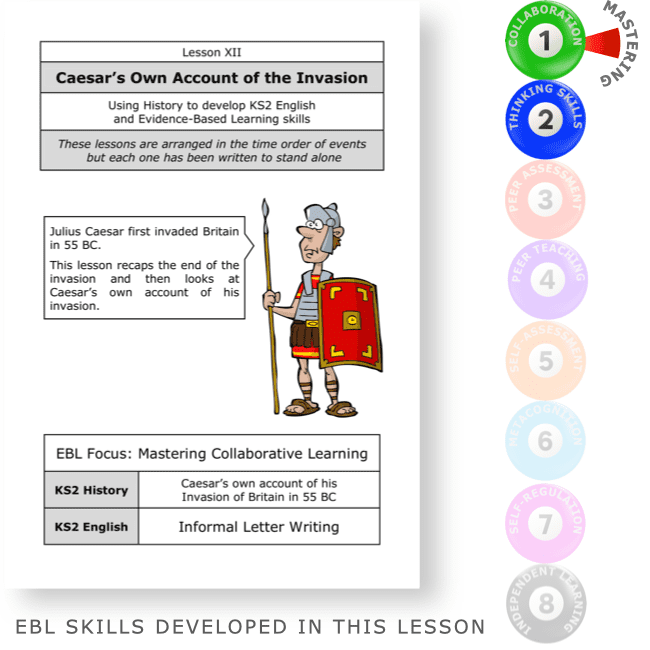 £3.00Add to basket
£3.00Add to basketJulius Caesar first invaded Britain in 55 BC. This lesson recaps the end of the invasion and then looks at Caesar’s own account of his invasion.
As well as English (writing an informal letter) and history skills the Evidence-Based Learning skills developed in this lesson includes thinking skills. This lesson also offers pupils the opportunity to master collaborative learning.
VIEW -
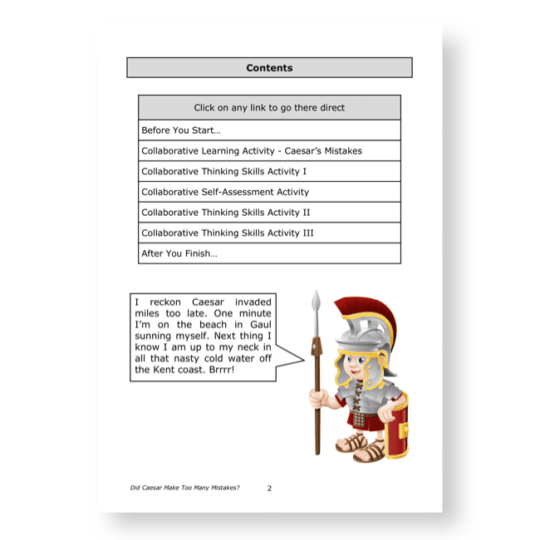

Did Caesar Make Too Many Mistakes
£3.00 Add to basket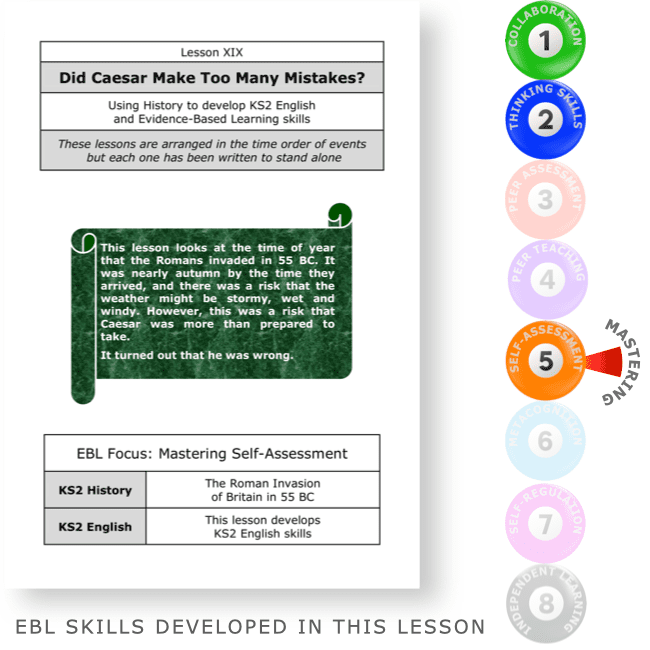 £3.00Add to basket
£3.00Add to basketThis lesson looks at the time of year that the Romans invaded in 55 BC. It was nearly autumn by the time they arrived, and there was a risk that the weather might be stormy, wet and windy. However, this was a risk that Caesar was more than prepared to take. It turned out that he was wrong.
As well as English and history skills the Evidence-Based Learning skills developed in this lesson include collaborative learning and self-assessment. This lesson also offers pupils the opportunity to master self-assessment.
VIEW -


Even More Problems for Caesar
£3.00 Add to basket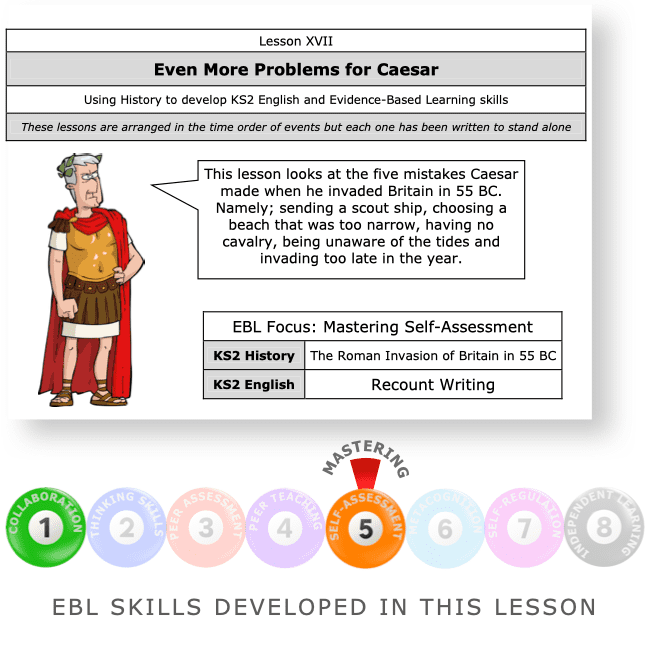 £3.00Add to basket
£3.00Add to basketThis lesson looks at the five mistakes Caesar made when he invaded Britain in 55 BC. Namely; sending a scout ship, choosing a beach that was too narrow, having no cavalry, being unaware of the tides and invading too late in the year.
As well as English (writing a recount) and history skills the Evidence-Based Learning skills developed in this lesson includes collaborative learning. This lesson also offers pupils the opportunity to master self-assessment.
VIEW -
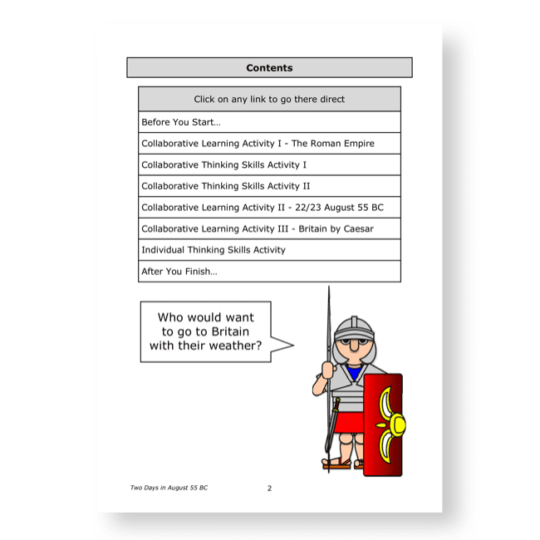
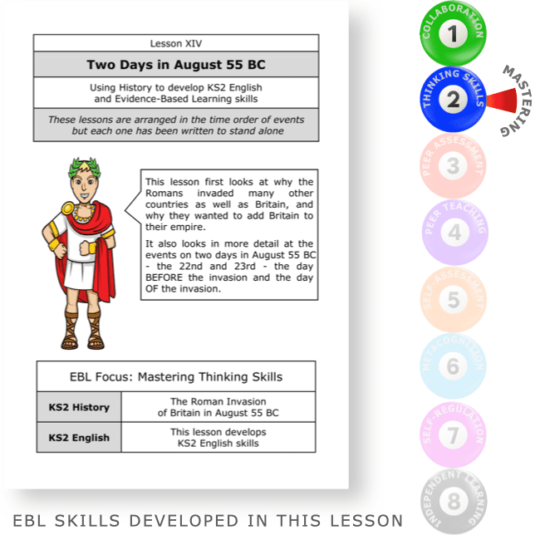
Two Days in August 55 BC
£3.00 Add to basket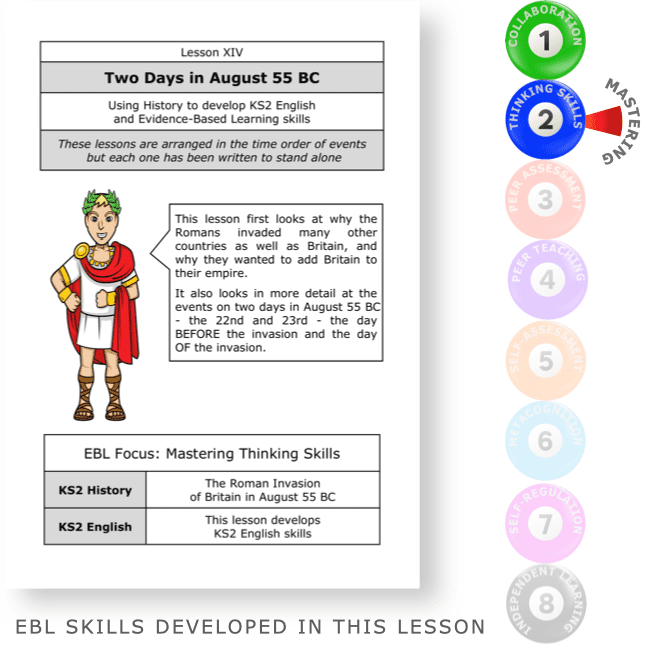 £3.00Add to basket
£3.00Add to basketThis lesson first looks at why the Romans invaded many other countries as well as Britain, and why they wanted to add Britain to their empire. It also looks in more detail at the events on two days in August 55 BC – the 22nd and 23rd – the day BEFORE the invasion and the day OF the invasion.
As well as English and history skills the Evidence-Based Learning skills developed in this lesson includes collaborative learning. This lesson also offers pupils the opportunity to master thinking skills.
VIEW


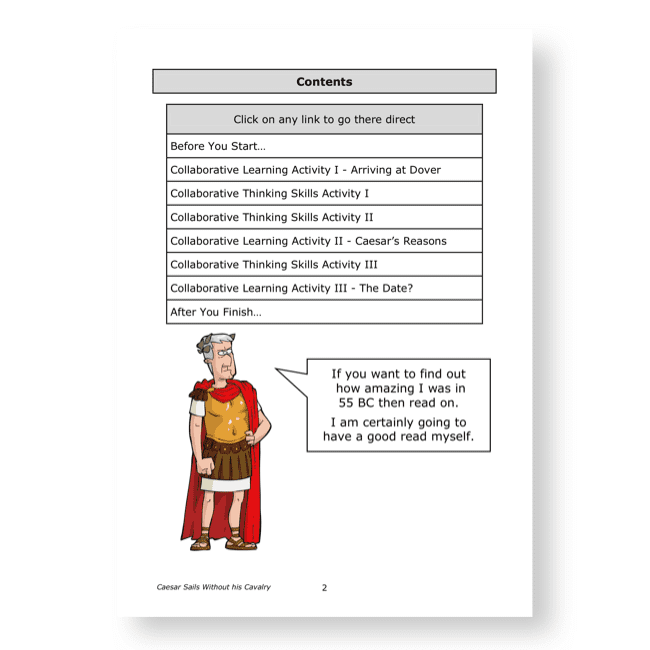
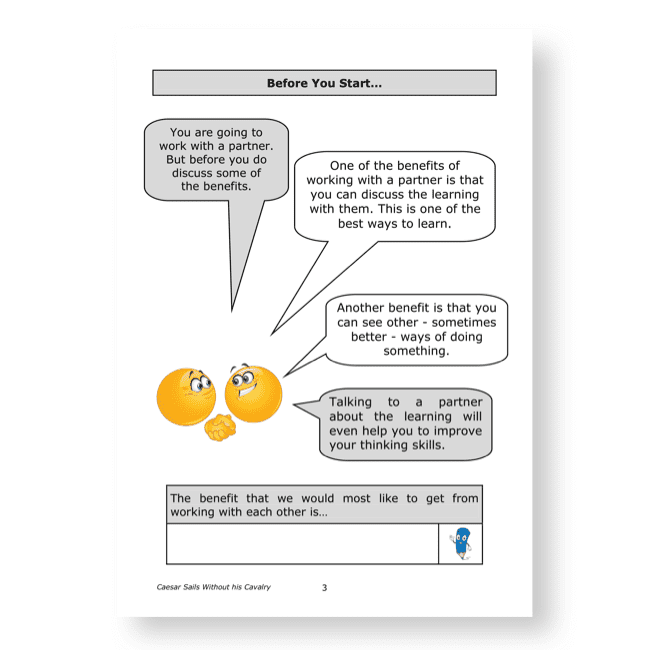
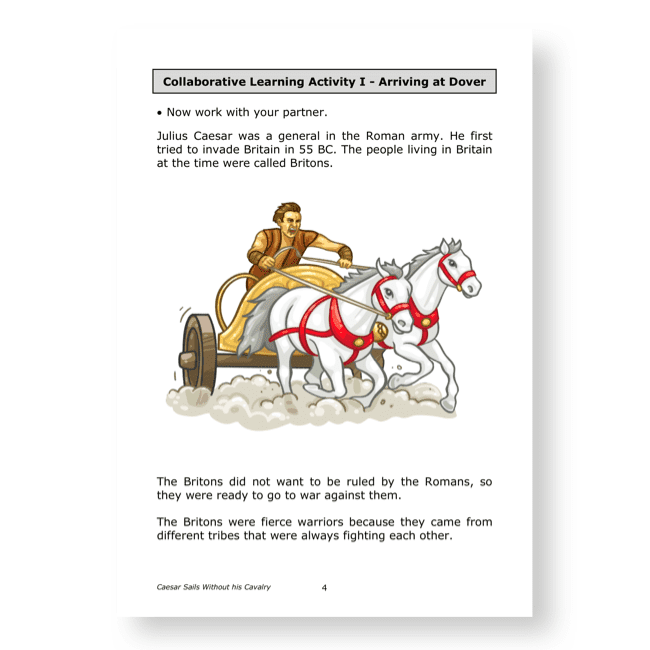
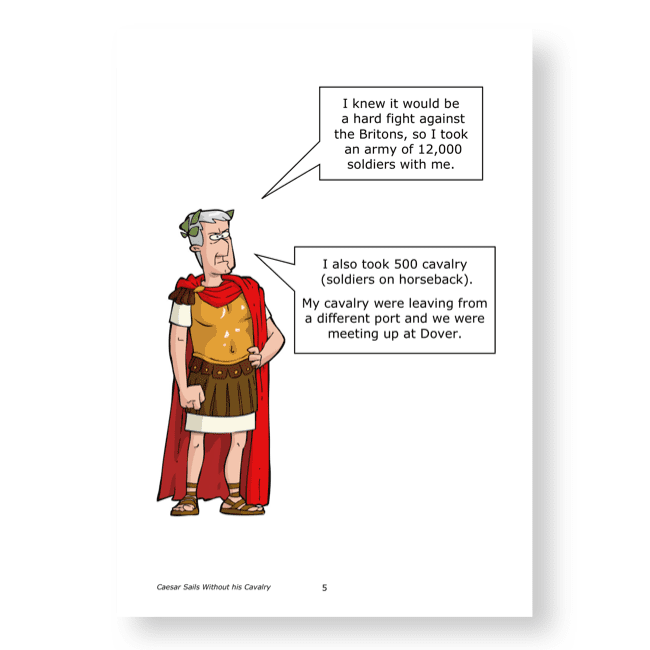
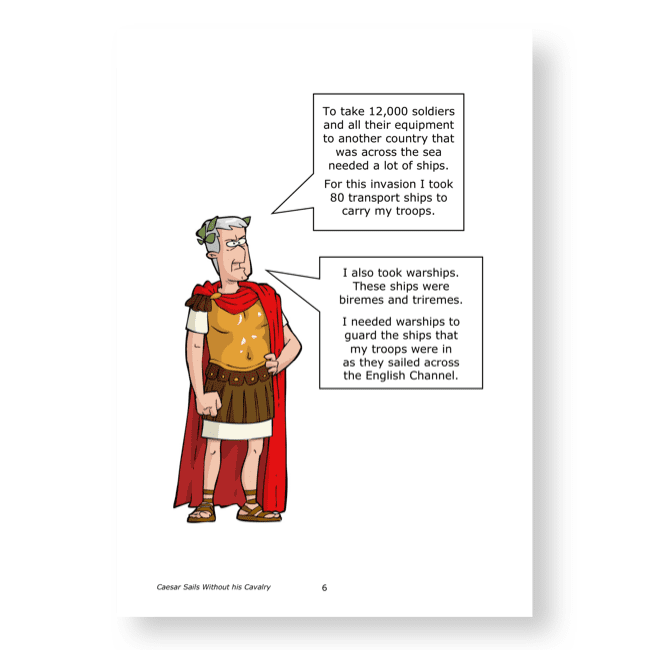

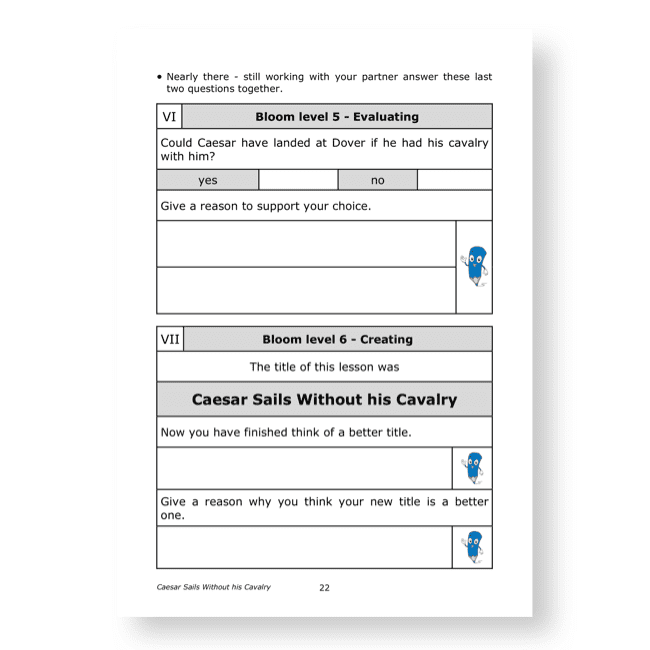
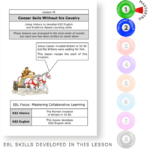
Philipem (verified owner) –
We asked a.i. to review this lesson. This is what it said:
Ride Into Interactive Learning with This Roman Invasion Lesson
Looking for a richly detailed historical scenario that will get your students truly collaborating and thinking critically? This lesson on Caesar’s ill-fated first invasion of Britain in 55 BC without his cavalry forces checks all the boxes.
On the English literacy front, students will be synthesising information from texts and images to write analytical accounts of the key events. Having to articulate their historical understandings in writing provides excellent practice for core comprehension and composition skills.
When it comes to historical knowledge, the lesson immerses pupils in the dramatic turning point when Caesar’s overconfident attempt to conquer Britain was stymied by the tides, defiant Britons, and his lack of cavalry support. Students will retrace the pivotal decisions and missteps that caused the invasion to falter right from the start.
But most importantly, the lesson design seamlessly reinforces crucial evidence-based learning techniques through every activity. Students will be continuously collaborating in pairs to analyse texts, discuss concepts, and practice thinking skills leveraging Bloom’s Taxonomy. Collaborative learning simply doesn’t get more engaging than debriefing a military campaign!
Like all 25 lessons in this exemplary series, collaborative learning is purposefully scaffolded over multiple activities to foster true skill mastery. Between all the historical drama and hands-on collaboration, I give this resource ⭐⭐⭐⭐⭐ for bringing the ancient world to life for upper KS2 learners (years 5-6). Your students will be battle-ready for academic success!